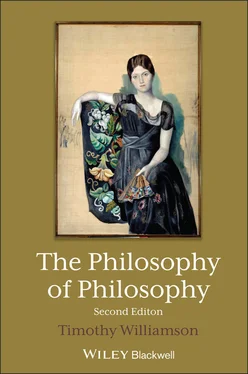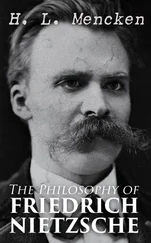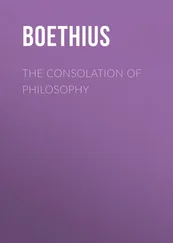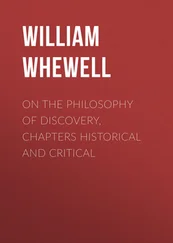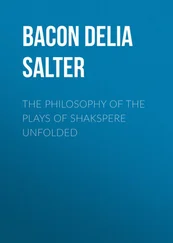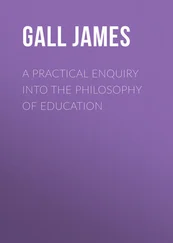2 2 The overall criticism of Quine’s procedure goes back to Grice and Strawson (1956). Sober (2000) argues that Quine violates his own methodological naturalism in criticizing semantic notions on foundational grounds without considering their use in science.
3 3 Given Kripke’s arguments, defining “analytic” as the conjunction of “a priori” and “necessary” does not yield a natural notion, since a disjunction of an a priori contingency with an unrelated a posteriori necessity will then count as analytic: it is a priori because its first disjunct is and necessary because its second disjunct is. One does somewhat better by defining “analytic” as “a priori necessary,” which excludes that example, although the point of such a combination of epistemological and metphysical elements remains to be explained. The arguments below apply to this notion too. Of course, Kripke’s main concern is the difference between the a priori / a posteriori and the necessary/contingent distinctions; he clarifies their differences from the analytic/synthetic distinction in passing. Nevertheless, the differentiation between the first two distinctions forces the demotion of the third from that of trying to play both the first role and the second.
4 4 See Boghossian (1997) for the distinction between metaphysical and epistemological accounts of analyticity, and Tappenden (1993: 240) for a somewhat similar distinction.
5 5 Etchemendy (1990: 107–24) contrasts “substantive” generalizations with logical ones. The idea is widespread. It occurs in different forms in Wittgenstein’s Tractatus Logico-Philosophicus and in Locke’s “Of trifling propositions” (An Essay Concerning Human Understanding, Book IV, Chapter viii).
6 6 Since analytic truths are standardly taken to be sentences, the term “true” will sometimes be applied to sentences, as well as to thoughts and propositions; where required, the context makes clear what kind of truth-bearer is intended. Talk of knowing or believing a sentence should be understood as elliptical for talk of having knowledge or belief which one can express with the sentence (on its standard meaning). Thus someone who knows “Grass is green” knows that grass is green and can express that knowledge by saying “Grass is green”; this is not to be confused with the metalinguistic knowledge that the sentence “Grass is green” is true.
7 7 Proof: Assume (Taslr), (Faslr) and (Tasrl). To derive (Ta), note that it is equivalent to the conjunction of two claims: (i) if “P” is analytically true, then “P” is analytically true if and only if P; (ii) if “P” is analytically false, then “P” is analytically true if and only if P. Now (i) is logically equivalent to the claim that “P” is analytically true only if P, which follows from (Taslr). Moreover, by (Faslr) “P” is analytically false only if not P; as just seen “P” is analytically true only if P, so “P” is analytically false only if “P” is not analytically true; thus if “P” is analytically false then both sides of the biconditional in the consequent of (ii) fail, so (ii) holds. To derive (Ts), first note that “P” is synthetically true only if P by (Taslr). Conversely, if P then “P” is analytically true or synthetically true by (Tasrl); since by the antecedent of (Ts) it is not analytically true, it is synthetically true. Incidentally, by themselves (Ta) and (Ts) are weak in other ways too; in particular, they do not entail that nothing can be both analytically true and synthetically true.
8 8 For related arguments see Williamson (1994b: 141–2) and Tappolet (1997).
9 9 See Boghossian (1997: 335–6). Quine says that we can say that the logical truth “Everything is self-identical” depends for its truth “on an obvious trait, viz., self-identity, of its subject matter, viz., everything.” However, he claims that it makes no difference whether we say that or say that it depends for its truth “on traits of the language (specifically on the usage of “=”), and not on traits of its subject matter” (1966: 106).
10 10 Another problem for the supposed contrast is that it seems to equivocate on “means.” When we explain why “Barbara is a barrister” is true by saying “It means can be paraphrased as “expresses the proposition”; what proposition a sentence expresses may depend on the context in which it is uttered, if indexicals are present. By contrast, the appeal to meaning in the case of analytically true sentences is not to the proposition expressed on some particular occasion but rather to the linguistic meaning of the sentence, which is invariant across contexts, even if indexicals are present.
11 11 To handle ambiguity, treat it as homonymy: distinct sentences with the same superficial form. The reification of meanings in the definition can be eliminated at the cost of circumlocution. Note also that the utterance of a modal-analytic truth may be false if the context shifts during the utterance: consider “If it is now exactly noon then it is now exactly noon.” Similarly, an utterance of “If John is a bachelor then John is unmarried” may express a falsehood if the wedding ceremony is completed between the utterance of the antecedent and the utterance of the consequent. Taking such complications into account would not help friends of analyticity.
12 12 The notion of modal-analyticity is similar to the notion of deep necessity in Evans (1979), where the truth of the sentence does not depend on any contingent feature of reality.
13 13 See n. 6 for this terminology.
14 14 The term “Frege-analytic” is from Boghossian (1997), with reference to §3 of Frege (1950) (as Boghossian suggests, the interpretation of the passage is not entirely clear). He classifies the notion of Frege-analyticity as neither epistemological nor metaphysical but semantic (1997: 363); for convenience, it is treated here under the heading of metaphysical notions of analyticity.
15 15 Quine (1966: 111) notes that so-called truth by definitions (“Every vixen is a female fox”) depends on prior logical truths (“Every female fox is a female fox”).
16 16 Note that the epistemological issue is not how we can know that s is a logical truth; it is how, given that s is a logical truth, we can know the simple truth of s.
17 17 For more discussion and further references to the controversy over the nature of logical consequence see Williamson (2000b).
18 18 See Salmon (1986), especially 133–5.
19 19 See Kripke (1979). This contradicts Dummett’s claim that “It is an undeniable feature of the notion of meaning – obscure as that notion is – that meaning is transparent in the sense that, if someone attaches a meaning to each of two words, he must know whether these meanings are the same (1978: 131). For more general theoretical considerations against such claims see Williamson (2000a: 94–107). See also Horwich (1998: 100–1).
20 20 The contexts of utterance and circumstances of evaluation here are not restricted to the actual world. If the content of an expression has a structure which reflects the grammatical structure of the expression, then sameness of intension does not imply sameness of content, and sameness of intension in every context does not entail sameness of character, that is, sameness of content in every context. See Kaplan (1989) for relevant background.
21 21 Boghossian argues that many a priori truths are not Frege-analytic (1997: 338–9).
22 22 This point is related to the paradox of analysis: how can a conceptual analysis be both correct and informative? The paradox goes back to Langford (1942).
23 23 See Fodor (1998: 69–87) and Williamson (2000a: 31–3) for further discussion.
24 24 For helpful discussion see the essays in Part IV of Stalnaker (2003). He sometimes use the terminology of “descriptive semantics” and “foundational semantics” rather than “semantics” and “metasemantics” respectively.
Читать дальше
